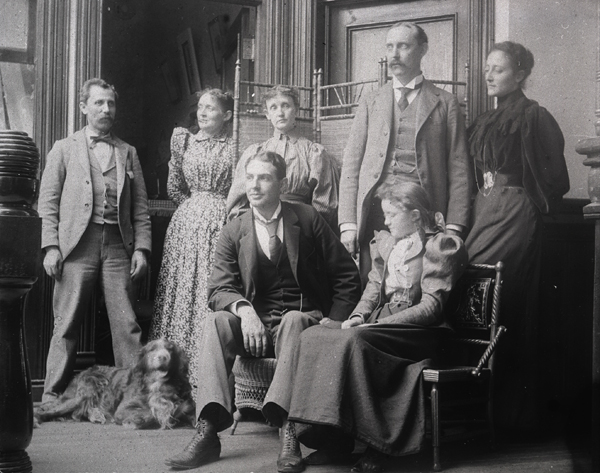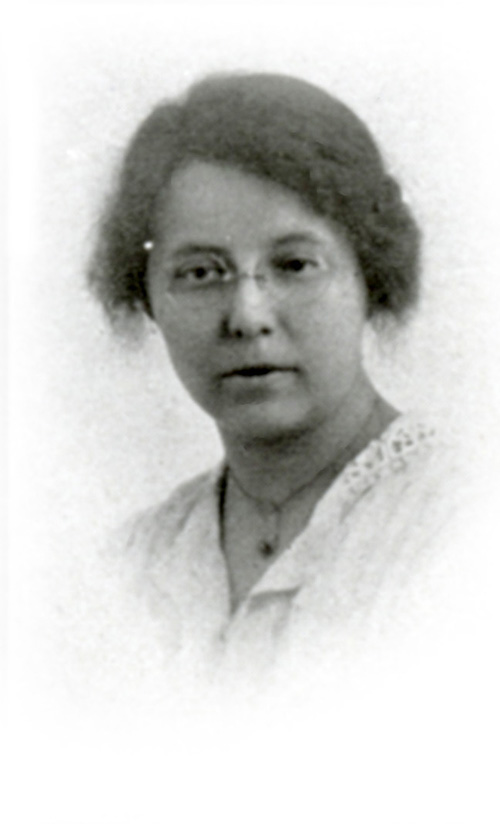- Editorial Offices
- 203 Brantly Hall
- Missoula, MT 59812
- (406) 243-2488
- themontanan@umontana.edu
Artifacts: UM Women Pioneers
A look at UM's earliest women leaders. By Jake Daly, Montanan student intern.Montana women, by nature, push boundaries, lift each other up and lead by example. This is especially true for the many generations of female alumnae whose tenacious spirit embodies the character of UM.
Artifacts takes a special look at a few of these pioneering women who dedicated themselves to making the world around them better, especially during times when they were not afforded the same opportunities as their male peers and the world was preoccupied with war.
Eloise Knowles & Ella Robb Glenny: UM’s First Two Graduates
Eloise Knowles was born in Deer Lodge in 1872 — 17 years before Montana Territory was granted statehood. In 1895, Knowles enrolled in the newly established University of Montana, where she studied philosophy. At a time when female students were a rarity in higher education, Knowles and her female classmate,

Ella Robb Glenny, made history by becoming the first two graduates of UM in 1898, the same year Main Hall’s cornerstone was laid.
Knowles went on to earn a graduate degree in philosophy from the University of Chicago then returned to Missoula and taught in UM’s Art Department. She founded the UM Alumni Association in 1901. In 1904, Knowles became a founding member of the Penetralia Honors Society, which is affiliated with the modern-day Mortar Board. Knowles also helped found the UM chapter of the Theta Pi sorority, now called Kappa Alpha Theta.
Mary Frances Garrigus:First Native UM Law Graduate
As a member the Apsáalooke people of the Crow Nation, Mary Frances Garrigus was born in Stillwater, now Columbus. When she was 20 years old, Montana’s first and only law school was established at UM. Garrigus enrolled as an undergrad at UM in 1912. That same year, World War I erupted in Europe and would soon spread across the globe. Garrigus served as president of UM’s Catholic Student Association while earning her bachelor’s degree.

The United States officially entered the Great War in 1917, drafting millions of young men to fight overseas. Garrigus earned her Juris Doctor from UM in June 1918. One of three women to graduate from UM’s school of law that year, Garrigus later became Montana’s first Native female lawyer. She took a position teaching business at Carbon County High School in Red Lodge and volunteered as a nurse in a hospital established to fight the influenza pandemic at night.
A few short weeks after peace was declared Garrigus contracted the flu herself. She passed away on Nov. 30th, 1918, nearly two years before the women’s right to vote was officially acknowledged in the United States. She was laid to rest in Billings. In 2018, the Friday of Indian Law Week at UM was dedicated as Mary Frances Garrigus Day. The following year, UM's law school hung a portrait of Garrigus in the second floor commons area.
Her peers’ admiration is demonstrated in a quote from UM’s 1916 yearbook:
If you take advice from Frances
You can never come to harm;
For she goes about campus
With a law book neath her arm.
Jane Jeffers: First ASUM Student Body President
Jane Jeffers’ ancestors drove Longhorn cattle to Montana from Texas and settled in Ennis, where she was born in 1924. Jeffers enrolled at UM in 1942, mere months after the United States officially ent

ered the Second World War. Once again, millions of young men were drafted to wage war in Europe, Asia and Africa, and women across the United States stepped up and took on leadership roles in America’s industry and academia. Jeffers later recalled that time:
“All the Men were gone,” she said. “We women were finally able to take on men’s jobs. Women were empowered during those years.”
In May 1945, scarcely one week after the allied powers declared victory in Europe and nearly four months before the Japanese Empire surrendered, Jeffers became the first female president of UM’s student body. When she heard she had been elected, she simply said “Gosh.” After graduating the following year, Jeffers moved back to Ennis, where she became the town’s unofficial historian. She passed away in 2018 at the age of 94.




